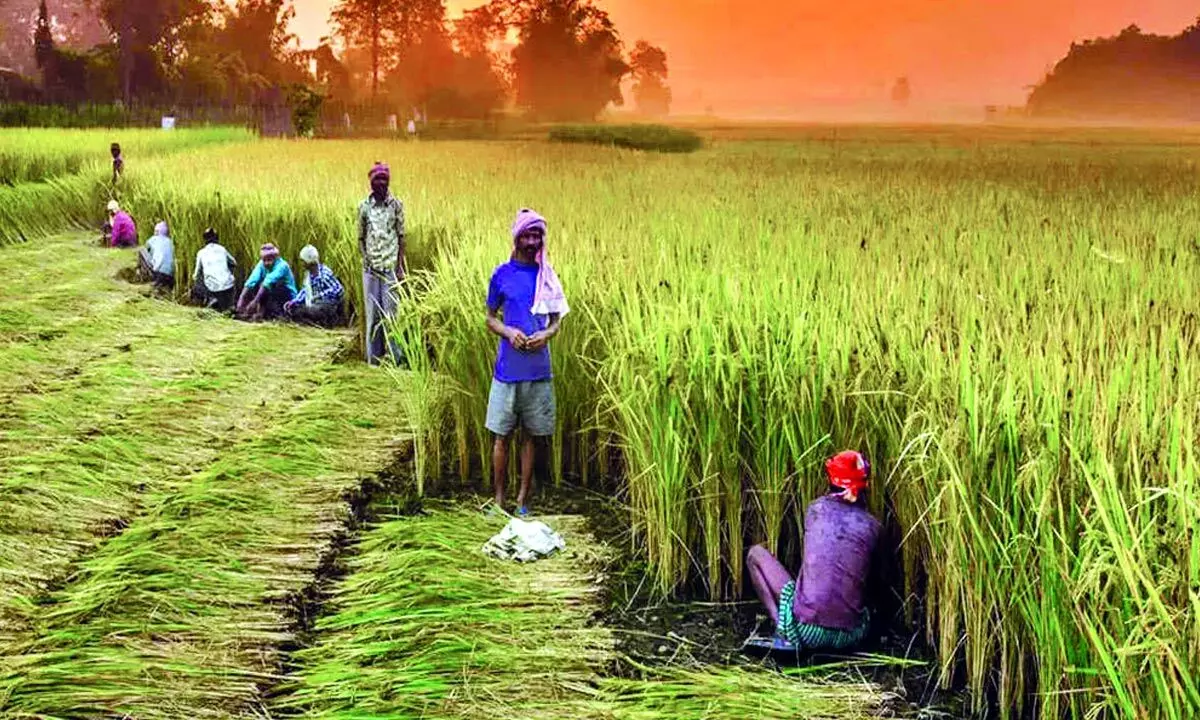Will G-20 Presidency help India correct anomaly of agri subsidies?
The position is a golden chance for India to correct the long standing anomalies that are heavily loaded against the developing countries in the domain of agriculture and food subsidies: Report
image for illustrative purpose

India is going to hold the G20 Presidency from December 1, 2022, to November 31, 2023. The G20 economies currently account for 85 per cent of global GDP, 75 per cent of international trade and two-thirds of the world population, making it the premier forum for international economic cooperation. The coveted Presidency is a golden chance for India to correct the long standing anomalies that are heavily loaded against the developing countries in the domain of agriculture and food subsidies.
The most important pressing issue is regarding the agricultural subsidies. First, for developed countries, the domestic support per farmer in US in 2016 was as much as $60,586, while in UK it is $6,762. These figures must have jumped following the pandemic. For India, even if the post pandemic numbers are taken into consideration, it is hardly $600. Thus, it is perhaps the other way around in terms of agricultural subsidies if we engage in a debate of developed and developing countries, says a report by economic research wing of State Bank of India. The report has been prepared by the team led by Soumya Kanti Ghosh, Chief Economic Advisor, SBI.
Secondly, under the WTO dispensation, agricultural subsidies creating trade distortions are not allowed. These subsidies are marked withinthe amber box. Within the amber box, WTO further specifies de minimis as the minimal amount of subsidy that is permitted at 1986-88 prices. The de minimis figures for developed and developing countries are at 5per cent and 10 per cent of their agricultural production respectively.
After considering various subsidies given by the government including food, fertiliser, power, irrigation, Market Intervention Scheme and Price Support Scheme (MIS-PSS), crop insurance, credit interest subsidy as well as income support under PMKisan, agriculture subsidy for India is estimated. Subsequently,discounting the agri-output numbers at 1987 prices and using the GDPdeflator show that India will need to cut its subsidy by as much as 92per cent from current levels if it were to bring subsidy to 10 percent of agri output/WTO-mandated targeted subsidy! This is thus atheatrical absurdity as it will require India eliminate all support tothe vulnerable segment of the rural economy, according to the report.
Thirdly, the reference year of WTO is significantly outdated, and it is better if the G-33 proposal that
proposes to use the discount factor as a trimmed 3-year rolling average for every year, based on the preceding five-year period excluding the highest and lowest price. Using such a discount factor, India will need to cut its subsidy by31per cent from current levels if it were to follow the proposed
WTO-mandated targeted subsidy!
Interestingly, India has done remarkably well before Covid as its subsidy was even lower than the WTO mandated agricultural subsidy during FY18-FY20.
Fourthly, India's key procurement programmes are protected from penal provisions under the peace clause secured at the WTO's Bali ministerial in 2013. However, as part of the permanent solution, the developing countries are seeking protection against disputes on any food procurement or other support programmes that have been launched even after 2013. Additionally, at the recently concluded 12th WTO Ministerial Conference, there was no agreement on government-to-government (G-to-G) arrangements for export of foodstuffs from public stock holding stocks to respond to a food security crisis. Hopefully, a solution would be found for the procurement of food grains soon for countries like India that have a robust procurement policy.

